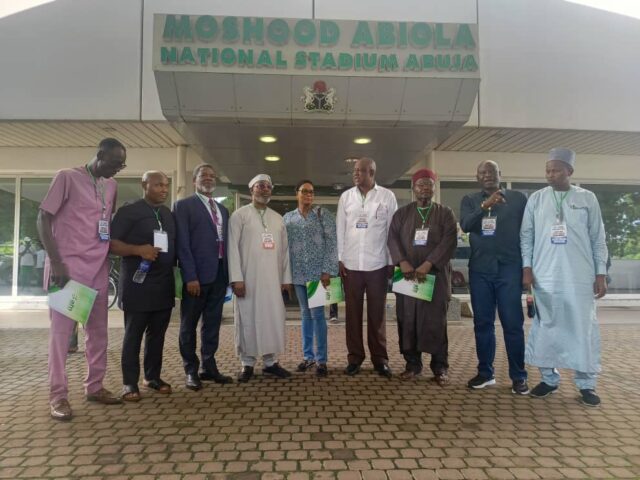The just-concluded election into the board of the Athletics Federation of Nigeria (AFN) have once again thrown the spotlight on the intense politicking and internal wrangling that continue to cloud sports governance in the country.
In a tightly watched process, Chief Tonobok Okowa was re-elected as President of the AFN, securing a second term despite months of political tension, factional battles, and bitter infighting that have become all too familiar in Nigerian sports federations.
Read Also: Kanyinsola Ajayi Blazes to Historic 9.92s, Becomes Nigeria’s 4th Fastest Man in History
Election or Power Play?
Observers note that the AFN election, like many before it, was marred by allegations of division, behind-the-scenes lobbying, and what some describe as “if-it’s-not-me-it-won’t-work” attitudes. Rather than being a celebration of athletic vision and unity, it became yet another battleground of egos and political chess moves.
Many stakeholders have begun to ask the hard questions: Is the fight for leadership about the growth of the sport or about personal ambition? If we truly care about Nigerian athletics, why do we keep sabotaging the same system we claim to love?
Okowa’s Fresh Mandate
Despite the chaos, Chief Okowa emerged victorious and wasted no time in assembling a fresh board meant to drive a new era of reform. His re-election is seen as a vote of confidence by some and a controversial continuation by others. What remains undeniable is that Okowa now has both the power and responsibility to stabilize the AFN and restore its battered credibility.
He immediately announced key appointments into strategic roles on the board, including:
Dr. Samuel Kolawole Oredipe as Auditor of the Federation
Dr. Nneka Nkem Anibieze as Chief Operating Officer
Barr. Bamidele Edokpaye as Legal Adviser
Mr. Babajide Odedeji as Safeguarding Officer
A Call for Unity – But Will It Be Heard?
In his post-election remarks, President Okowa called for unity and cooperation, urging all stakeholders to “put aside differences and put Nigerian athletics first.” But critics say words are not enough – it is time to walk the talk. The federation can no longer afford to be held hostage by internal battles when the athletes, the heart of the sport, are left behind.
With the National Sports Commission now aligning with the reform agenda of the presidency, there is a real opportunity for change – but only if all parties agree to end the cycle of disruption.
What’s Next for Nigerian Athletics?
The road ahead is uncertain. Will this re-elected administration deliver the promise of transformation, or will history repeat itself with more drama than development?
One thing is clear: the sport deserves better. And unless unity replaces division, and service replaces selfishness, the soul of Nigerian athletics will remain under siege.









